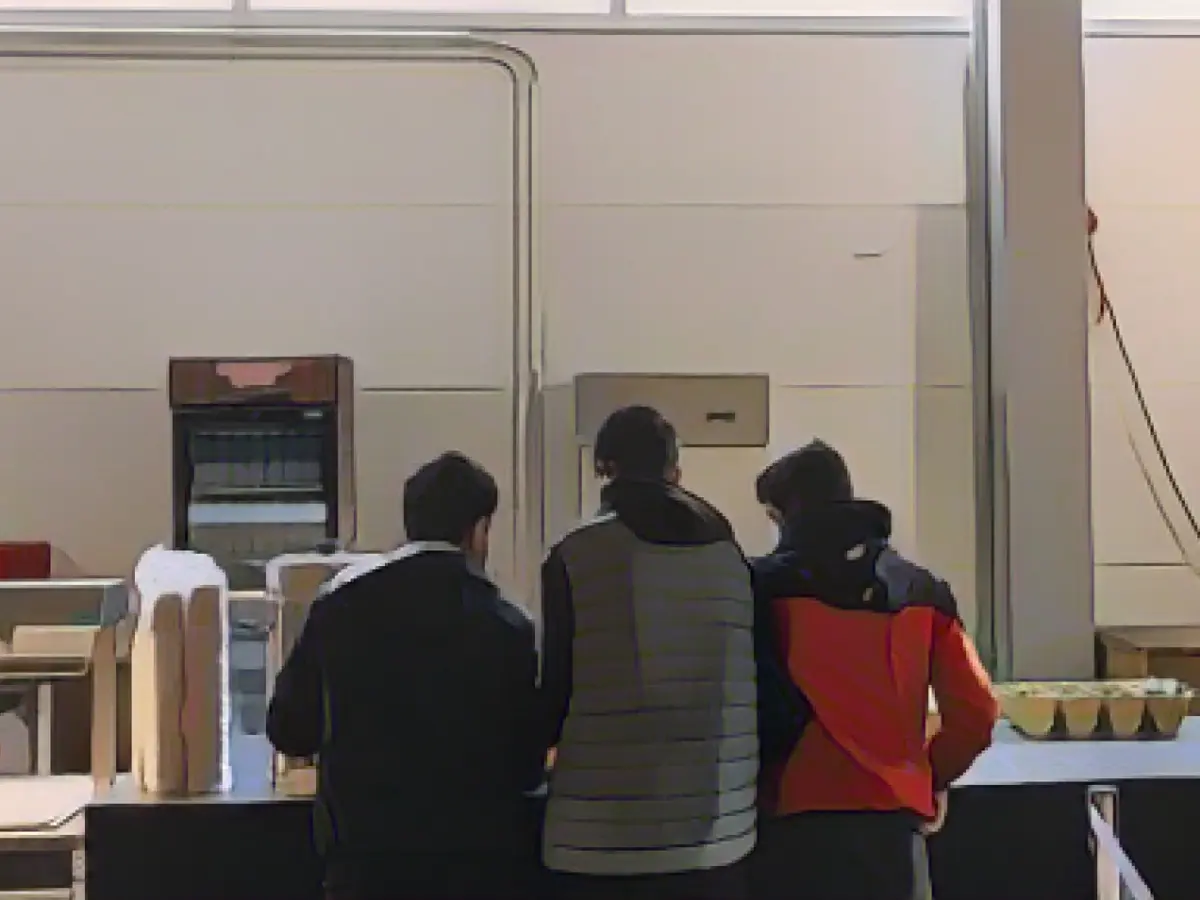Project - "male.young.refugee" for "invisible" refugees
Young men who have fled their homes and who are conspicuous for their alcohol and drug use, for example, will continue to receive special support in Baden-Württemberg. According to the Ministry of Social Affairs, the "männlich.jung.geflüchtet" model project has been extended until the end of 2024. At four locations - Esslingen, Friedrichshafen, Deizisau and Ulm - experts help this group, which is not sufficiently reached by services and is not adequately supported by youth welfare services.
Experiences with the project in Esslingen
In Esslingen, for example, Alexandra Vogel from the "Yalla Salim" project and a colleague from mobile youth work look after young men aged between 14 and 27. The two words, which come from Arabic, mean "hurry up" (yalla) and salim means, among other things, "healthy". "It is often the case that young refugee men come here very motivated, but then very often experience rejection and racism. There are a lot of things that cause motivation to disappear at some point."
This year, they have had contact with 80 refugees, says Vogel. "One thing is that we provide advice. The other is that we do outreach work, i.e. street work. We go out on the street and see where young people are, then talk to them and tell them about our counseling services," says Vogel. This project is run by the Stadtjugendring Esslingen. The advice in the office usually involves filling out applications, submitting statements and also accompanying the refugees to court appointments if necessary.
Approaching them on the street
The counselors meet the young people in parks or on the station forecourt. Part of the approach involves presenting projects. "Some then ask questions and a conversation ensues, and others signal very clearly that they don't feel like it. And then we simply move on," says Vogel. "We generally have positive experiences." The young people often have questions about everyday life. "They want to talk about things that don't remind them of the heaviness that surrounds them in everyday life - jobs, work, escape."
Motivation and a sense of achievement
According to Vogel, it is also important for the caregivers to focus more on people's resources. If you find out what they have already done in their home country, you can build on this and make them an offer. It's about finding out where the young people have experienced success. "Social environment, language, housing, daily structure - if these aspects were covered, I believe that it would help a lot of people to persevere and build a good life here."
According to Social Minister Manne Lucha (Greens), the "männlich.jung.geflüchtet" project is aimed at a target group that is often almost invisible to established help and advice services.
Read also:
- A clan member is punished here
- Traffic lawyer warns: Don't talk to the police!
- Will he be convicted as Jutta's murderer after 37 years?
- He also wanted to kill his cousin
- The "männlich.jung.geflüchtet" project, which aims to support young men who have fled their homes and struggle with alcohol and drug use, will continue until the end of 2024 in Baden-Württemberg's cities of Esslingen, Friedrichshafen, Deizisau, and Ulm.
- In Esslingen, the "Yalla Salim" project, run by the Stadtjugendring Esslingen, helps young refugees between 14 and 27 years old, offering advice and outreach work on the street to engage with those who might be reluctant to seek help.
- Alexandra Vogel, a project worker from "Yalla Salim," shares that they've had contact with 80 refugees this year in Esslingen and often encounter young people who seek advice on everyday life topics to distract themselves from the hardships they face.
- Vogel also believes that focusing on the resources and accomplishments of young refugees can be crucial to their overall well-being and resilience, helping them feel motivated and achieve success in their new communities.
- The "männlich.jung.geflüchtet" project is particularly important because it targets a group of refugees who are often overlooked by established support services, according to Social Minister Manne Lucha from the Greens.
Source: www.stern.de








